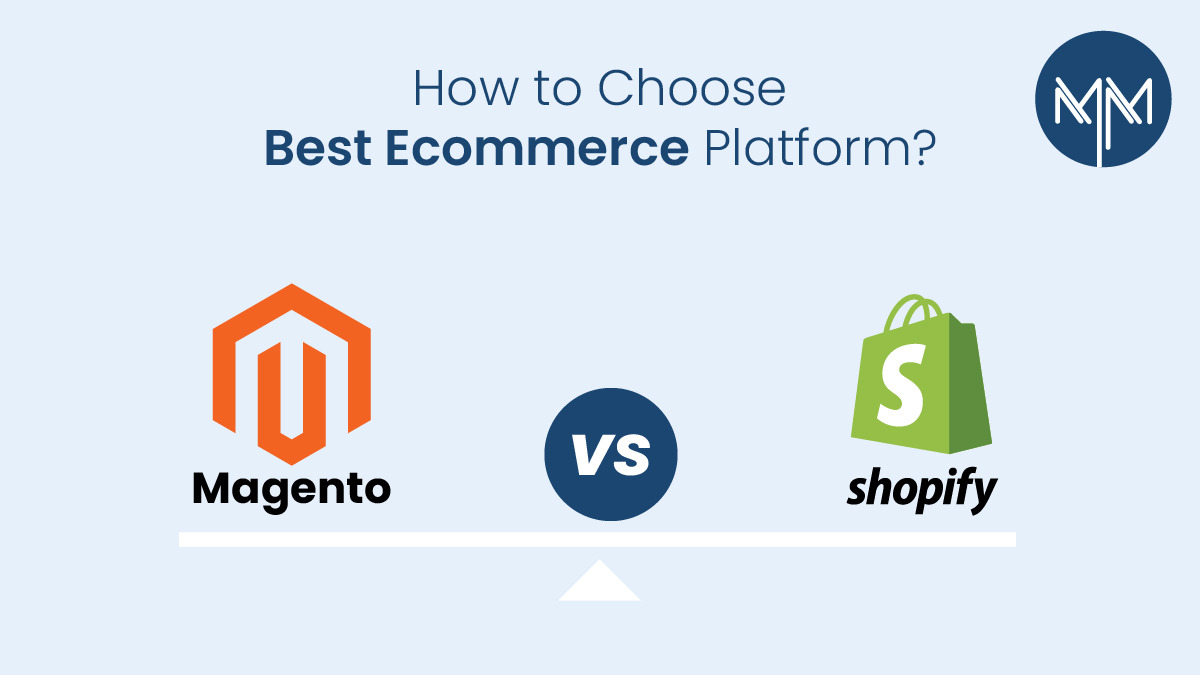Despite the massive economic crisis witnessed by all sectors due to Covid -19 pandemic, e-commerce saw tremendous growth fueled by the restrictions imposed on movement. The new normal saw more than 2 Billion people make online purchases with an estimated revenue of $4.2 trillion in 2020 alone.
This made businesses who were not online, scramble quickly to find an e-commerce solution and transform rapidly. If you are one of them, this article can act as a quick checklist to help you choose a scalable and long term e-commerce tool.
A robust e-commerce platform can ensure a better shopping journey for clients. The intuitive user interface helps you minimize the experience gap between digital and traditional shopping experiences. Thus, it’s one of the main aspects that must be reviewed as you move on the path of digitizing your business.
The analysis below would help you evaluate the features of the market leaders in this domain: Shopify & Magento.
Both platforms are popular for their end-to-end support, scalability, flexibility, and powerful hosting with multiple marketing functionalities. They include features of digital optimization to generate higher traffic. So here you go:
- Overview: Magento was launched in 2007 and was later acquired by Adobe in 2018. Shopify, on the other hand, started as a SaaS-based platform in 2004. Both the platforms offer over 4000 plugins and support over 100 payment gateways. They also have the option of unlimited product uploads.
- Source: Magento has both open-source (Community Edition) and proprietor sources (Enterprise Edition); while Shopify is not available as open-source and only available as a paid service.
- Cost: The Community Edition of Magento is free; however, the Enterprise Edition can cost up to $22,000 per year. For Shopify, the license cost starts as low as $29 per month for basic and can go up to $2000 per month for a Shopify Plus plan. There is also a transaction fee of 0.15% to 2% for Shopify, which is not applicable for your Magento store.
- Usage: Amongst the two platforms, Magento with its wide range of storage options can be a little complex to operate; whereas; Shopify can easily be managed with simpler technical skills.
- Hosting: Magento requires a separate hosting server; whereas, Shopify comes with dedicated hosting solutions included in the monthly plan.
- Design and Themes: Both platforms have a wide range of themes to choose from. However, for Magento, the themes are fully customizable and for Shopify, it is partially customizable.
- Inventory Management: Both have unlimited options, except for the basic plan of Shopify which has limited inventory.
- Multiple Language Support: Magento has inbuilt support for multiple languages, but for Shopify, the same has to be integrated with third-party apps.
- Blogging: Shopify has an inbuilt feature but Magento requires extension integration.
- SEO Tools: Both are designed to be SEO-friendly stores. For Magento however, with more customized options, the structure of the site could be changed for more effective SEO.
- Security: Both the platforms have good inbuilt security features. Shopify is a closed source platform with integrated security features. For Magento, a separate integration of security can enhance the security level of your store.
- Total Users: As per the latest market data, Shopify holds almost 18% market share amongst the entire eCommerce space, while Magento accounts for almost 9% of the market share.
With these comparison points, you can align your business goals and choose a platform that suits your objectives.. While Shopify might have twice the market share of Magento, do keep in mind that some very large online stores of many brands like Nike, Nestle, Land Rover, Liverpool, Ford run on Magento.
If you are looking to bootstrap your online store, then Shopify is a sure winner. For more customization and enterprise-level features, Magento would be the obvious choice.
Well, if you still have doubts and need assistance to make a more informed decision, you can always connect with the team @ Matrix Media Solutions who can help you both with Magento and Shopify strategy and implementation.


 June 22, 2020
June 22, 2020

